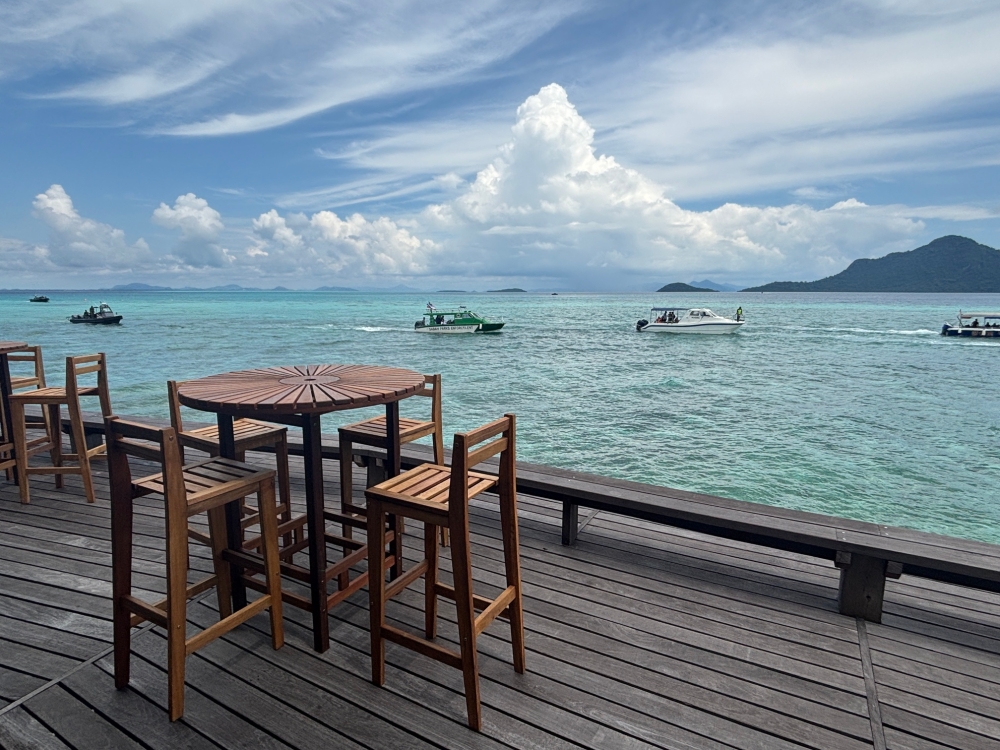SEMPORNA, Aug 15 — Once a rugged coastal town, Semporna has transformed into a thriving hub for tourists, with thousands arriving daily to explore the pristine islands off Sabah’s east coast.
An estimated 2,000 visitors, mostly from mainland China, now arrive in Semporna each day, fuelling demand for services ranging from boat guides and accommodation to souvenir shops and seafood restaurants.
Clusters of water bungalows, both on the mainland and nearby islands, have been sprouting up, earning Semporna the nickname “Malaysia’s Maldives” for its crystal-clear waters and picturesque beaches.
Alongside the surge, however, come opportunities for locals as well as mounting concerns — from socio-economic pressures to environmental and infrastructure strain.
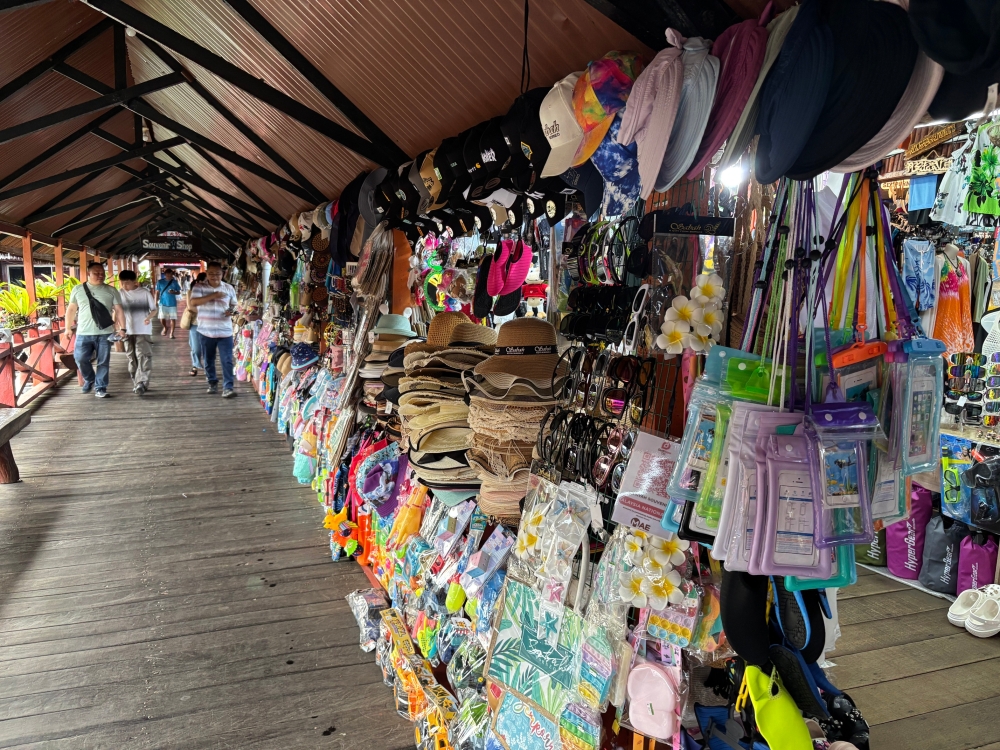
Stalls selling tourist souvenirs line the busy Dragon Inn lane in Semporna. — Picture by Julia Chan
Local businesses being squeezed out
Many long-standing business owners say they are being edged out by tour operators and enterprises linked to China.
These operators often control the entire tourist experience — from transport and meals to accommodation — leaving little room for local enterprises to tap into the spending.
“You see a lot of tourists. Maybe about half the people you see around town are tourists. But the income does not reflect a surge in business.
“Tourists are coming, yes, but they eat at their own restaurants, stay in their own hotels, buy souvenirs from their own shops,” said a local Chinese shop owner who only wanted to be known as Wong.
By “their,” he meant Chinese-owned businesses. Locals claim the rapid proliferation of such outlets is reshaping the town’s commercial identity and determining who profits.
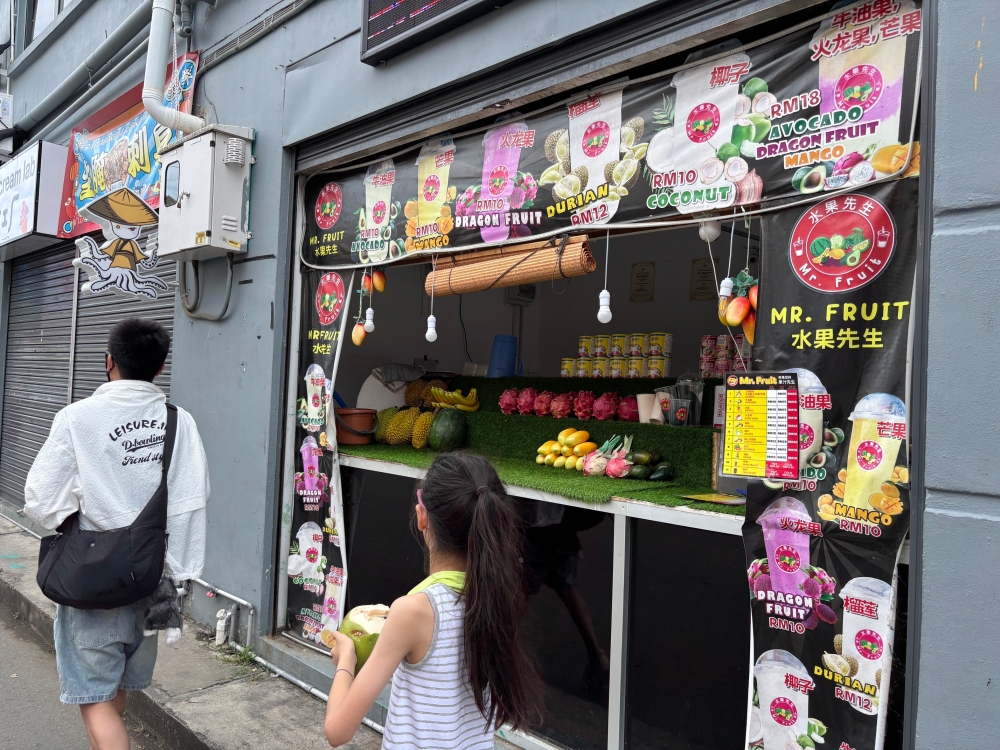
Fruit stands like this can be found every 50 metres in Semporna. — Picture by Julia Chan
Government authorities, including the Ministry of Tourism, Culture and Environment and the local district office, insist no licences of any kind have been granted to foreign nationals, and on paper, the businesses are legitimate.
According to locals, many Chinese owners operate through Malaysian “partners” who serve as proxies, often in name only.
The tourism boom has also driven up property prices, with rents at newer shoplots climbing sharply.
In town, convenience stores, juice stalls, hotels, restaurants, and souvenir outlets — selling items such as bird’s nest and dried seafood — now dominate the streetscape. Older parts of town still house sundry shops and local eateries such as mamaks.
“We just can’t compete with the high rent and low margins. Some of the older restaurants and shops have already closed,” Wong said.
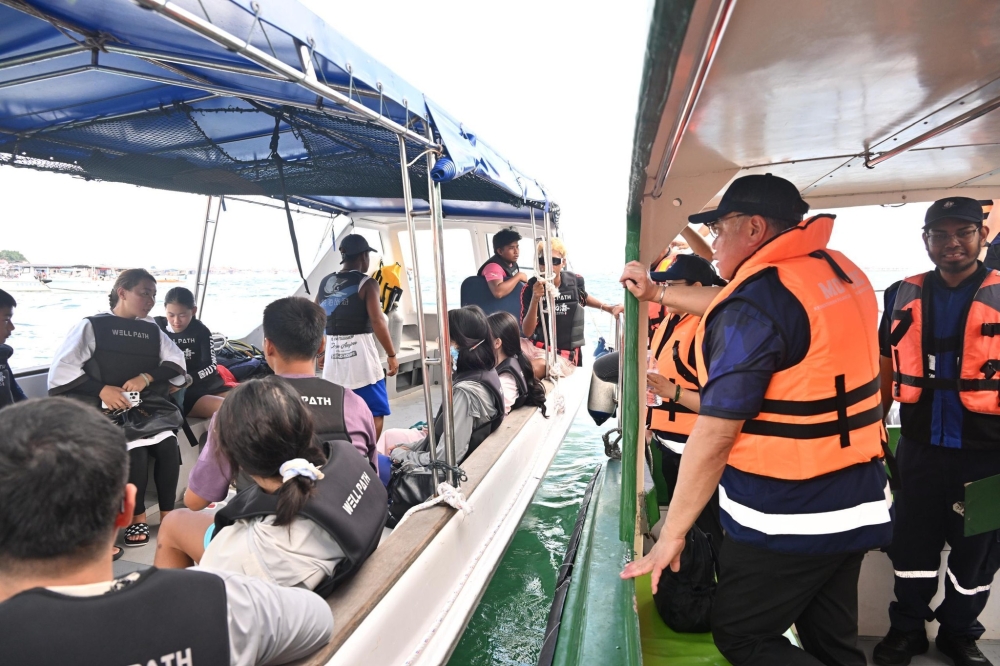
Tourism Minister Datuk Seri Tiong King Sing joins enforcement officers on a sea patrol in Tawau to inspect boats for valid permits and safety compliance. — Picture via Facebook/Dato’ Seri Tiong King Sing
Illegal operations uncovered in Tawau
The issue of foreign-linked tourism businesses operating outside legal bounds isn’t confined to Semporna.
In nearby Tawau, a recent joint enforcement operation led by Tourism, Arts and Culture Minister Datuk Seri Tiong King Sing uncovered several tour companies — previously believed to be locally owned — that were in fact run by Chinese investors and linked to illegal activities.
These included unlicensed overwater chalets, aquaculture farms without approval, and homestays built on agricultural or livestock land.
“I have received numerous complaints about irregularities and illegal activities at tourist sites, which are damaging the safety reputation of Malaysia’s tourism industry,” Tiong said in a statement on Facebook.
He warned that operating without proper certification posed serious safety and management risks, and could lead to tragedy if accidents occur.
While welcoming foreign investment in tourism, he stressed it must be done legally and in full compliance with Malaysian laws.
“Welcoming investors does not mean turning a blind eye. Whether they are from China or anywhere else, those involved in illegal activities, malpractice or the misuse of rental licences to evade the law will not be tolerated,” he said.
During the Tawau operation, enforcement teams inspected 30 buses and tourist vehicles, 15 tourism business premises, 40 boats and four jetties, issuing nine summonses.
Sea patrols found some vessels over capacity, without valid permits or carrying unverified documents. Roadblocks were also set up to check bus permits and driving licences.
Tiong has urged local authorities to act swiftly, investigate suspicious operations, and shut down businesses operating without valid licences.
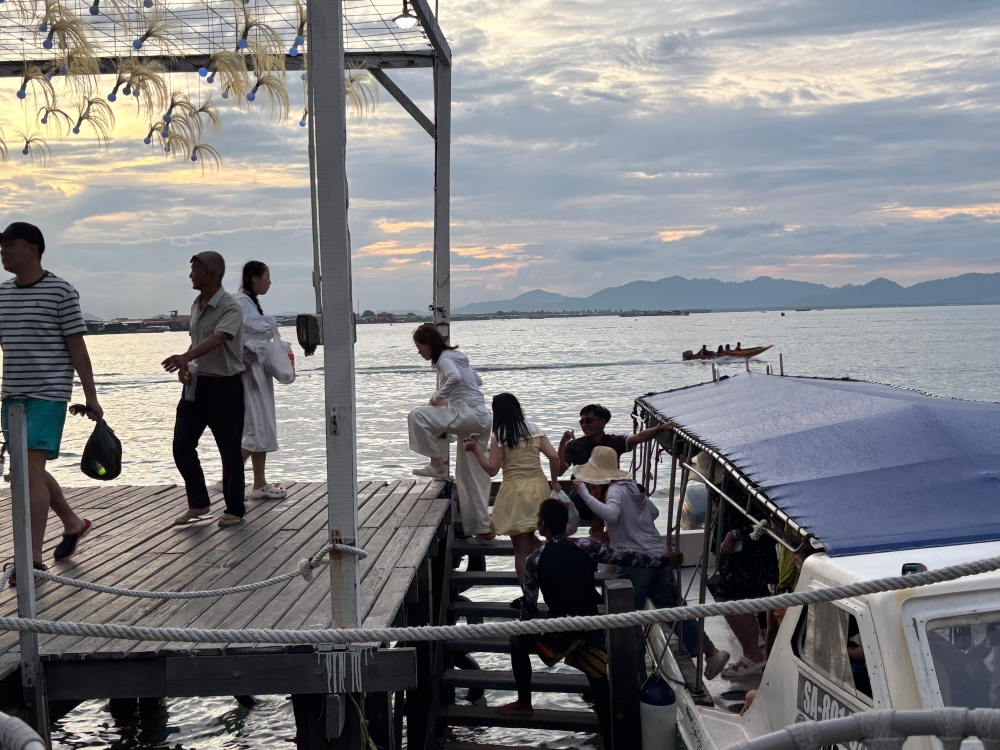
With no designated main jetty, boat operators use any available docking area. — Picture by Julia Chan
Infrastructure falling behind
Semporna’s infrastructure, designed for a much smaller population, is struggling to cope.
Power and water shortages occur, and rubbish piles up faster than it can be collected.
“The town just isn’t ready for this many people every day,” said dive guide Tommy Abdullah.
“The rubbish is out of control, and the sewer smell is everywhere. The authorities can’t keep up.”
Locals say existing systems cannot sustain more development, even as new projects are planned.
At a recent State Assembly sitting, Sulabayan assemblyman Datuk Jaujan Sambakong said Semporna lacks a proper tourist jetty despite its growing popularity.
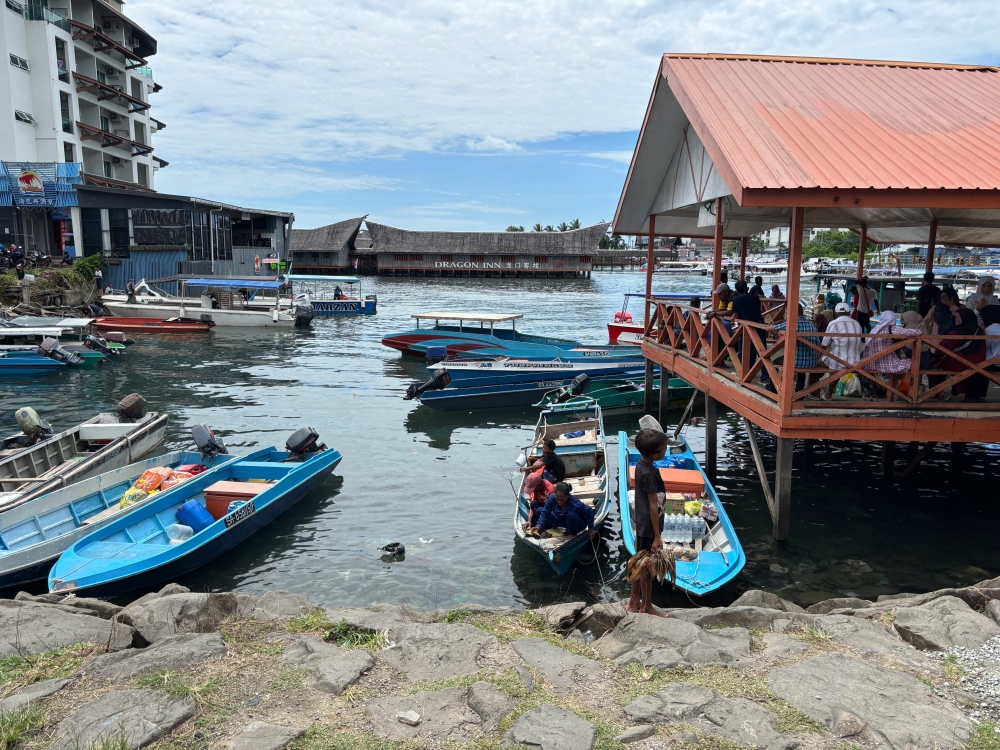
Without a proper tourism jetty, boats in Semporna dock haphazardly along the waterfront. — Picture by Julia Chan
“Semporna is already considered an international tourist attraction. But our tourism jetty is still made of wood.
“There’s no proper platform and the boats are docking in disorganised spots. It’s not just inconvenient but also poses safety risks,” he said.
He also pointed to poor road conditions and clogged drains in the district.
“Jalan Masbah looks more like gravel than a paved road.
“Even the drains are clogged with grass cuttings and rubbish dumped by contractors,” he said.
District office executive officer Ali Adam Hamzah said cleanliness has improved in recent years, though the rubbish load remains challenging.
“There have been more investors coming in over the last decade, and we are trying to keep up.
“At the moment it is manageable. We do get a lot of feedback about the rubbish — on land and at sea — and we have been doing our best,” he said.
The district office recently bought three additional rubbish trucks, bringing the fleet to eight or nine.
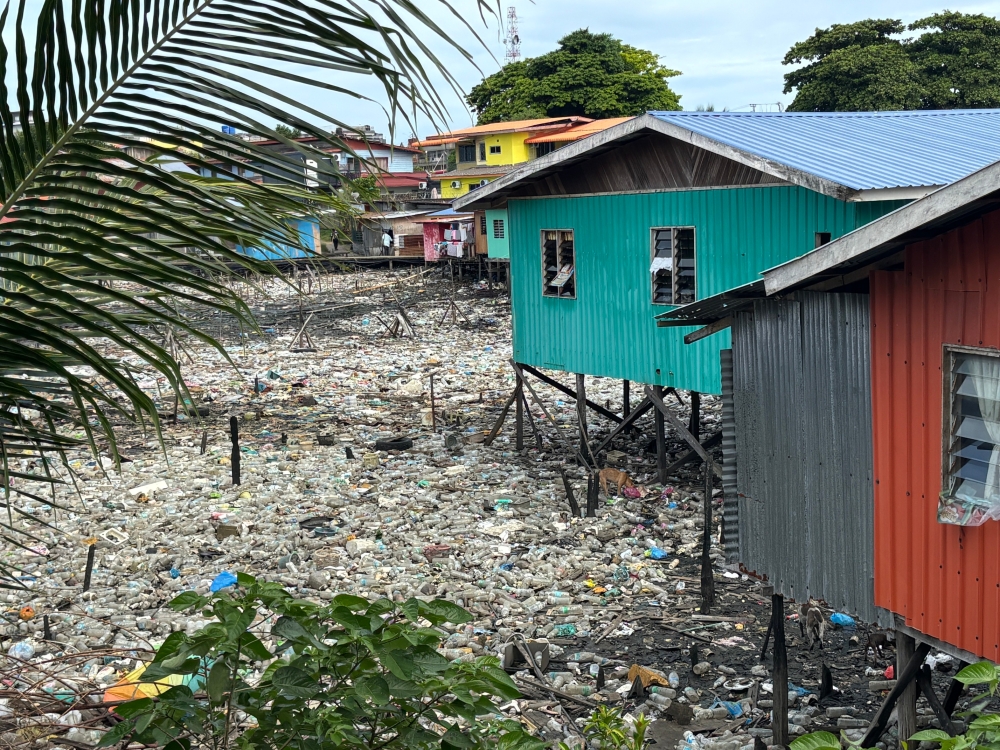
Waste management remains a major problem, particularly around local water villages. — Picture by Julia Chan
But waste at sea, particularly around inhabited islands like Bum Bum, is harder to manage as they fall outside the council’s jurisdiction.
“Most of the problems come from the islands. In the city, we have it under control. According to feedback from tourists, businesses, and residents, it is getting better, cleaner. We are trying, but it’s hard to tackle it 100 per cent.
“Of course, with more businesses and hotels, as the local council we are in support, because it also means more revenue. And with more revenue, we will be able to provide better service to everyone,” he said.
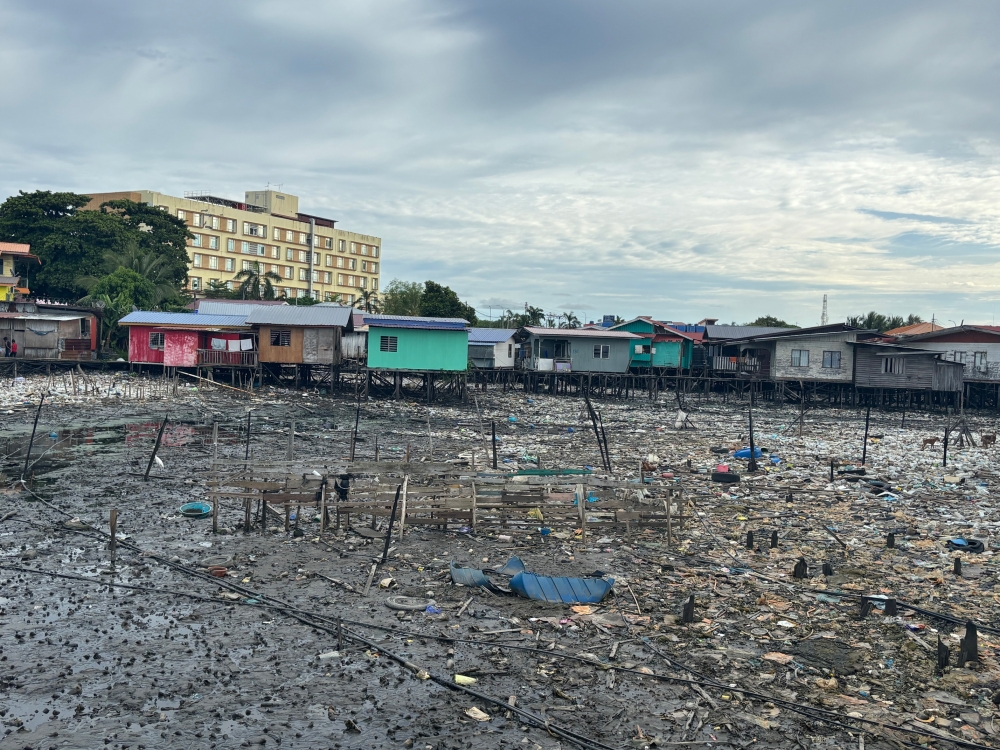
With limited rubbish collection at sea, waste from nearby islands often ends up floating into Semporna’s waters. — Picture by Julia Chan
Environmental toll
Marine pollution is another growing concern, with reports of increased fish bombing and cyanide use by fishermen under pressure to meet seafood demand from tourists.
With seafood a major draw for Chinese visitors, local conservationists say unsustainable fishing practices are becoming more common.
“Restaurant owners pay the Bajau Laut fishermen to use illegal methods like cyanide fishing or blast fishing to quickly secure large hauls. You can hear the fish bombs go off underwater if you’re diving or snorkelling,” said Tommy.
“It’s not just damaging to the reefs, but also to the people doing it. Tourists come for diving and snorkelling, but if the coral’s destroyed, the marine life will eventually go too — then what will be left?” he said.
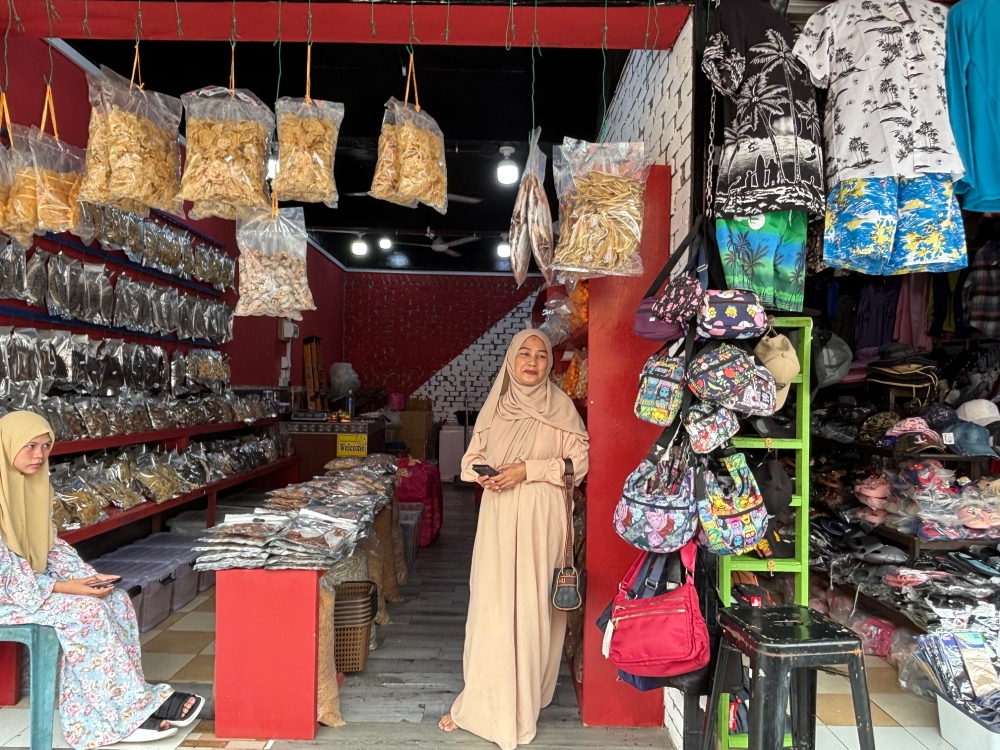
Local businesswoman Noorlita says the town cannot sustain the tourism boom on its own. — Picture by Julia Chan
Calls for responsible tourism and regulation
Despite the challenges, many residents still welcome tourism — but say it must be managed responsibly.
As Semporna becomes more reliant on the Chinese market, locals are calling for regulation and enforcement — from proper licensing of businesses to environmental protection and fairer distribution of benefits.
“The government needs to step in,” said Norlita Mohd Musa, who runs a shop selling local seafood specialities and general goods.
“We’re not saying ‘no tourists.’ We want more tourists. We’re saying ‘let’s do this in a way that helps our town, our people’… otherwise what is the point?” she said.
“This is our home,” said Hidayah Suhaimi, who runs a souvenir stall near Dragon Inn. “We were here before the tourists, and we will be here for a long time. So we want it to grow, but not at the expense of everything else.”


